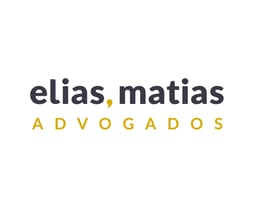OAB Approves Recommendations for the Use of Artificial Intelligence in Legal Practice
The Federal Council of the Brazilian Bar Association (OAB) has approved a set of recommendations to guide the use of generative artificial intelligence (AI) in legal practice. These guidelines aim to promote ethical and responsible AI usage, ensuring compliance with the fundamental principles of the legal profession and applicable legal requirements.
Drafted by the OAB's National Observatory on Cybersecurity, Artificial Intelligence, and Data Protection, the recommendations outline four key directives: Applicable Legislation, Confidentiality and Privacy, Ethical Legal Practice, and Communication Regarding the Use of Generative AI. Their purpose is to align AI usage with the existing legal framework, including the Statute of the Legal Profession, the OAB Code of Ethics and Discipline, the General Data Protection Law (LGPD), the Code of Civil Procedure, and intellectual property regulations. Additionally, the guidelines emphasize the need to safeguard client confidentiality, encourage ethical AI implementation, ensure transparency in client communications regarding AI usage, and periodically review the recommendations to keep pace with technological and regulatory developments.
OAB President Beto Simonetti underscored the importance of this initiative, stating: “Brazilian advocacy is being challenged by the advancement of AI, and the OAB is ready and prepared to address these transformations.” He further emphasized that the responsible use of AI is not only a professional obligation but also a societal commitment, ensuring that technology enhances client service and improves the efficiency of the justice system.
These recommendations serve as a framework for the safe integration of AI into legal practice, offering law firms greater confidence and security when adopting such technologies. According to the Observatory’s coordinators, adherence to these directives can strengthen trust between lawyers and clients, ensuring that AI use remains aligned with client interests and within the ethical boundaries of the profession.
The responsible and regulated development of AI is crucial to preventing negative consequences while maximizing its benefits without compromising security or human oversight. Key aspects of the recommendations include the need for lawyers to supervise AI applications, ensure transparency in client communications, uphold confidentiality and service quality, and remain updated on technological advancements.
The recommendations stress the importance of oversight and control over AI use within law firms. Lawyers in leadership positions must ensure that all team members comply with established security and privacy policies and receive ongoing training in the ethical and secure use of AI tools. Supervision is essential to prevent AI from replacing human judgment and to ensure that legal tasks exclusive to licensed attorneys remain within their domain.
Although the OAB’s recommendations do not have the force of law to impose sanctions, they serve as a critical advisory for lawyers to adhere to the OAB Code of Ethics and Discipline, aligning AI use with best professional practices. The document emphasizes the necessity of maintaining human oversight in decision-making and prohibits the exclusive delegation of legal activities to automated systems, reinforcing that AI should function as an auxiliary tool rather than a substitute for legal reasoning.
At Elias, Matias Advogados, we have established an Artificial Intelligence Working Group dedicated to analyzing technological advancements and their implications for daily legal practice. This group continuously explores innovative tools while ensuring their responsible and ethical implementation in alignment with the OAB’s guidelines. Our focus is to integrate AI-driven innovations in a manner that enhances client services while upholding the ethical principles that govern the legal profession.
https://www.eliasmatias.com/publicacao/oab-aprova-recomendacoes-para-o-uso-de-inteligencia-artificial-na-advocacia/1023
05 February 2025
